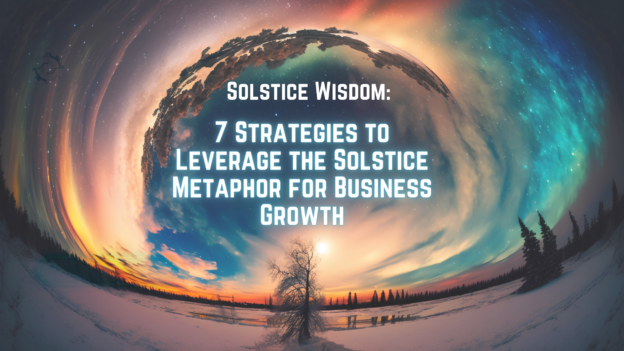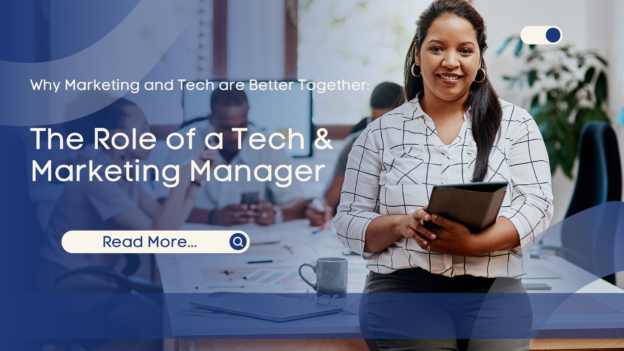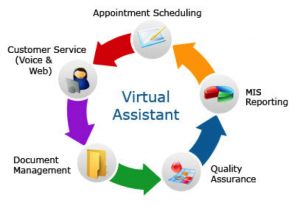In the intricate tapestry of human interactions, whether in personal relationships or the world of business, certain foundational principles stand out as critical building blocks. Just as we navigate our personal connections, businesses too rely on a set of principles to establish and maintain successful relationships, with their team and alignment with clients. Some call this core values of a business.
This article will dive into the ten foundational principles of successful relationships and align it with the direct relevance to the a business landscape.
The ‘C’ Code: Decoding the 10 Fundamental Pillars of Successful Relationships in Business and Beyond
1. Communication: The Bedrock of Understanding
At the heart of every thriving relationship lies effective communication. In personal connections, it’s about expressing thoughts and emotions openly, creating a deep understanding. Similarly, in business, clear communication is the recipe for longevity. Transparent communication ensures alignment, minimizing misunderstandings and paving the way for a robust partnership.
2. Compromise: Finding Common Ground
In the ebb and flow of relationships, compromise is the lubricant that keeps the gears turning smoothly. It’s not about sacrificing principles but about finding middle ground. In the business landscape, aligning with clients often necessitates compromise. Negotiating terms, adjusting strategies, and meeting halfway are crucial components of a successful partnership. The ability to find common ground echoes the dynamics of personal relationships, where compromise is the key to fostering harmony and understanding.
3. Consistency: Building Trust Brick by Brick
Consistency, the steady heartbeat of reliability, forms the backbone of trust in both personal and business relationships. Predictability in actions and words breeds trust. It is the foundation upon which trust is built, allowing individuals to feel secure and confident. In business, delivering consistent products or services builds client confidence. When clients know they can depend on you, it helps with a sense of security, akin to the reassurance found in consistent personal relationships. Just as consistency is a marker of trust in personal connections, it serves as a pillar of reliability in the business world, strengthening the client’s belief in the partnership.
4. Commitment: The Glue That Binds
Commitment is the glue that binds personal relationships and business partnerships alike. In business, commitment manifests as a devotion to client satisfaction. A committed business goes the extra mile, demonstrating a dedication to the client’s success. Just as in personal relationships, commitment breeds loyalty and longevity in business partnerships. It is the promise to navigate challenges together and celebrate successes as a united front.
5. Compatibility: Shared Values, Shared Success
Compatibility, the invisible thread connecting individuals, is equally vital in business. Aligning with clients who share similar values and goals creates a synergy that propels the relationship forward. In personal relationships, compatibility is the magic that turns shared interests and values into a deep and meaningful connection. In business, compatibility involves aligning with clients whose values and goals resonate with the company’s mission. Business partnerships flourish when there is compatibility in vision and objectives. Just as personal relationships flourish when based on common ground, business partnerships thrive when there’s alignment in values and objectives.
6. Compassion: A Human Touch in Business
In the realm of human connections, compassion is the gentle touch that heals wounds and nurtures growth. In business, compassion translates into understanding and addressing the client’s concerns. It’s about recognizing their challenges and empathizing with their needs. A compassionate approach builds a foundation of trust and mutual respect, essential in both personal and business relationships. Compassion in business is not merely a transactional gesture; it is the human touch that transforms a business-client relationship into a partnership grounded in empathy and understanding.
7. Chemistry: The Spark That Ignites Collaboration
Chemistry, the intangible spark between individuals, is the secret sauce in successful personal relationships. It’s the magnetic connection that makes interactions enjoyable, effortless, and fulfilling. In business, chemistry translates into a positive rapport that goes beyond the transactional. It’s about understanding each other, anticipating needs, and creating a connection that goes beyond the surface. Just as personal chemistry makes relationships enjoyable, business chemistry makes collaborations dynamic and fulfilling. The ability to connect on a personal level with clients creates a partnership that transcends the purely professional, making the collaboration more meaningful and enjoyable for both parties.
8. Connection: Bridging the Emotional Gap
A strong emotional connection is a driving force in personal relationships, creating a sense of intimacy and belonging. In business, establishing a connection with clients goes beyond the transactional. It involves building a relationship based on trust and understanding. Businesses that connect with clients on a personal level create a bond that transcends the purely professional. Just as personal connections thrive on emotional bonds, business relationships flourish when there is a genuine emotional connection between the company and its clients.
9. Confidence: Building Trust in Business Transactions
Confidence, the silent assurance that underlies personal relationships, is equally crucial in business. Clients need to trust that a business can deliver on its promises. Confidence in the business’s abilities instills trust and forms the bedrock of a successful partnership. In personal relationships, confidence is the assurance that the other person is capable and reliable. It is the trust that allows individuals to lean on each other for support and guidance. In business, confidence is the assurance that the company can meet the client’s needs and expectations. It is the trust that the business will deliver quality products or services consistently. Just as personal confidence enhances interpersonal relationships, business confidence will help build trust and credibility, laying the groundwork for a successful and enduring partnership.
10. Continued Growth: Nurturing the Relationship
In personal relationships, growth is an ongoing journey of self-discovery and shared experiences. It involves adapting to change, learning from challenges, and celebrating milestones together. In business, the principle remains the same. A successful partnership requires continuous growth and adaptation. Both parties must evolve, embracing change and innovation to stay relevant. Just as personal growth enriches relationships, business growth ensures the longevity and sustainability of partnerships. The ability to navigate change, learn from experiences, and grow together ensures that the business-client relationship remains vibrant and resilient in the ever-evolving landscape.
Bridging the Gap Between Personal and Business Relationships
In the tapestry of life, the threads of personal and business relationships often weave together seamlessly. The principles that guide successful connections are remarkably similar, transcending the boundaries between personal and professional spheres. Whether in the warmth of personal bonds or the pragmatism of business collaborations, these ten principles form the sturdy framework that supports, sustains, and elevates relationships to new heights.
As we navigate the complexities of our interconnected lives, the wisdom gained from successful personal connections can serve as a compass, guiding businesses towards lasting, mutually beneficial relationships with their clients. The bridge between personal and business relationships is not a chasm but a continuum, where the principles that creates human connections also lay the groundwork for successful and enduring business partnerships. By recognizing and embracing these shared principles, businesses can cultivate relationships that go beyond transactions, creating meaningful connections that stand the test of time. In doing so, they not only secure the loyalty and trust of their clients but also contribute to a business landscape where success is measured not only in profits but in the strength and depth of the relationships forged along the way.
If this is something you are interested in learning more about this and how to weave this into your tech, marketing or systems of your business, we would be happy to chat. We have limited spots available, but go ahead and book a free, no strings attached strategy call with us today while spots are still available.







 deadline or taking a bit more time to submit a quality project, which do they choose? Is the underlying goal of the
deadline or taking a bit more time to submit a quality project, which do they choose? Is the underlying goal of the  ready for greater responsibility. But, if they genuinely do not feel ready it may be a bad experience for them. Try to build up their confidence and remind them that you feel they are ready. If that fails and they still are uncomfortable at the thought of the project, find a new employee. It is not worth the
ready for greater responsibility. But, if they genuinely do not feel ready it may be a bad experience for them. Try to build up their confidence and remind them that you feel they are ready. If that fails and they still are uncomfortable at the thought of the project, find a new employee. It is not worth the  deadline, be cautious about underestimating the length of time the project will take. It may only take you a week, but your employee may need to do outside research adding a day or two. Or maybe your employee hits some unexpected roadblocks, requiring you to take the time to provide guidance or assistance. Always estimate more time to provide a buffer in case things don’t go as smoothly as planned.
deadline, be cautious about underestimating the length of time the project will take. It may only take you a week, but your employee may need to do outside research adding a day or two. Or maybe your employee hits some unexpected roadblocks, requiring you to take the time to provide guidance or assistance. Always estimate more time to provide a buffer in case things don’t go as smoothly as planned. delegation to avoid doing unpleasant tasks. Good leadership means being willing to do the menial, the unappealing, and aggravating tasks for the good of the business.
delegation to avoid doing unpleasant tasks. Good leadership means being willing to do the menial, the unappealing, and aggravating tasks for the good of the business. 
 about work at 5. When there is no firm end to the work day, it’s so much harder to transition from “work mode” to “living your life mode.” You feel guilty watching TV and wonder if you should go get that one article done. You daydream thinking of your to-do list. You always feel “on,” making it difficult to give yourself the
about work at 5. When there is no firm end to the work day, it’s so much harder to transition from “work mode” to “living your life mode.” You feel guilty watching TV and wonder if you should go get that one article done. You daydream thinking of your to-do list. You always feel “on,” making it difficult to give yourself the  Here is where you get to enjoy the freedom of being your own boss. Maybe your peak creativity hours are early morning and early evening. In the middle of the day, you suffer from the afternoon slump. So work in the peak hours and go workout or run errands when your brain power dips.
Here is where you get to enjoy the freedom of being your own boss. Maybe your peak creativity hours are early morning and early evening. In the middle of the day, you suffer from the afternoon slump. So work in the peak hours and go workout or run errands when your brain power dips. Once you create a schedule, protect it fiercely. Don’t check your email outside of work hours. Let your clients know what hours they can expect to reach you by phone…and don’t pick up if it’s outside of those (or work into your contract it’s a $75 fee every time they do). When you are done for the day, be done. Don’t fall into the trap of well I could get one more thing done. Allow yourself to rest and relax!
Once you create a schedule, protect it fiercely. Don’t check your email outside of work hours. Let your clients know what hours they can expect to reach you by phone…and don’t pick up if it’s outside of those (or work into your contract it’s a $75 fee every time they do). When you are done for the day, be done. Don’t fall into the trap of well I could get one more thing done. Allow yourself to rest and relax!
 Your body is remarkably like a machine. Optimal performance requires quality fuel, proper maintenance, and adequate rest. Skimp out on one of these areas and the performance suffers.
Your body is remarkably like a machine. Optimal performance requires quality fuel, proper maintenance, and adequate rest. Skimp out on one of these areas and the performance suffers. It’s time for improved organization. To many entrepreneurs, organization can seem like a luxury. Who has time to look for (and then implement) the best organizational system? But the longer you go without one, the more time you waste searching for that one filed buried under desktop folder after desktop folder.
It’s time for improved organization. To many entrepreneurs, organization can seem like a luxury. Who has time to look for (and then implement) the best organizational system? But the longer you go without one, the more time you waste searching for that one filed buried under desktop folder after desktop folder. This is another difficult mistake to stop engaging in. It’s all too easy to sit down at your desk in the morning…and never get up again. We falsely believe the best way to maximize our work is to maximize our hours working. In reality, our brains are much more efficient when we take breaks. Even just a few minutes every hour getting up and stretching can help your brain feel refreshed and ready to tackle whatever problem awaits you.
This is another difficult mistake to stop engaging in. It’s all too easy to sit down at your desk in the morning…and never get up again. We falsely believe the best way to maximize our work is to maximize our hours working. In reality, our brains are much more efficient when we take breaks. Even just a few minutes every hour getting up and stretching can help your brain feel refreshed and ready to tackle whatever problem awaits you. All too often we take on tasks that can and should be handled by someone else. We do this for many reasons. Maybe our team is so small we feel guilty passing along the task. Maybe we struggle with relinquishing control over our passion project. Maybe we worry it’ll take more time managing the employee than just doing it ourselves.
All too often we take on tasks that can and should be handled by someone else. We do this for many reasons. Maybe our team is so small we feel guilty passing along the task. Maybe we struggle with relinquishing control over our passion project. Maybe we worry it’ll take more time managing the employee than just doing it ourselves.






 So, lets get to the nitty gritty and the real reason you have landed on this blog. My first guess why you are here is because you are a small business owner, entrprenuer, soloprenuer, momprenuer or a “preneuer” of some kind and are looking for ways to get everything done and still maintain a healthy work/life balance. You also have likely heard somewhere along the way that if you are in business for yourself you really should look at partnering and aligning yourself with a top-notch Virtual Assistant. Because there is no way you can do it all on your own, stay sane, continue to love what you do and most importantly still be profitable. You know what? Whoever they are, they were right, you can’t do it all on your own.
So, lets get to the nitty gritty and the real reason you have landed on this blog. My first guess why you are here is because you are a small business owner, entrprenuer, soloprenuer, momprenuer or a “preneuer” of some kind and are looking for ways to get everything done and still maintain a healthy work/life balance. You also have likely heard somewhere along the way that if you are in business for yourself you really should look at partnering and aligning yourself with a top-notch Virtual Assistant. Because there is no way you can do it all on your own, stay sane, continue to love what you do and most importantly still be profitable. You know what? Whoever they are, they were right, you can’t do it all on your own.